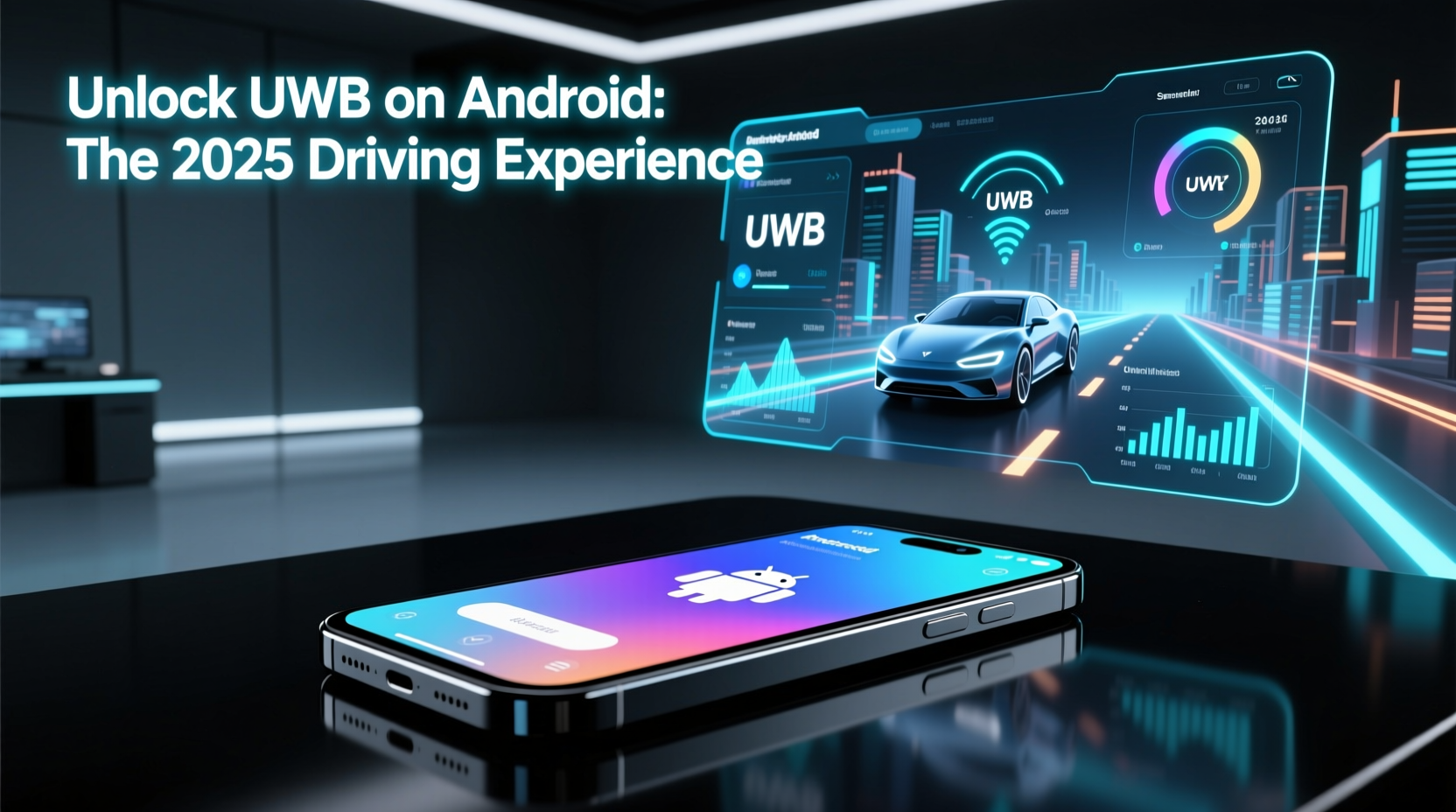Unlocking the Future: The Potential of Ultra-Wideband Technology
Imagine walking up to your vehicle and having it unlock, simply by detecting your smartphone in proximity. What sounds like a scene from a science fiction movie is actually becoming a reality, thanks to advancements in ultra-wideband (UWB) technology.
Understanding Ultra-Wideband (UWB) Technology
UWB isn't a new term in wireless communications; it's a protocol that enables short-range, high-speed communication by defining the precise location of objects with remarkable accuracy. Unlike other wireless technologies, UWB uses very low energy over a large portion of the radio spectrum, which allows it to deliver exceptional accuracy—recorded down to less than half an inch. Originally developed for data transmission, UWB's core strength lies in its precision, distinguishing it in today’s tech landscape.
Applications of UWB: From Tracking Devices to Smart Homes
One of the most prominent uses of UWB technology is found in Apple's AirTags, designed to help users track and locate everyday items. However, its applications go far beyond lost keys and wallets. UWB is a game-changer for vehicle entry systems, allowing a seamless experience when unlocking cars. Leading automotive brands like Audi, BMW, and Mercedes-Benz are integrating UWB into their systems, simplifying and securing the process of accessing your vehicle.
Beyond personal vehicles, UWB technology has the potential to revolutionize smart home systems, facilitate precise inventory management in logistics, and optimize location tracking in sports and fitness arenas. The reliability and precision of UWB continue to encourage various industries to explore new possibilities.
Devices Supporting UWB Technology
While both iOS and Android platforms support UWB, the list of devices equipped with this technology remains relatively short. Current devices with UWB capabilities include:
| Apple Devices | Android Devices |
|---|---|
| iPhone 11, 12, 13, 14; Apple Watch Series 6, 7, 8, Ultra | Google Pixel 6 Pro, 7 Pro; Samsung Galaxy Note 20 Ultra, S21+, S22 series, S23 series; Xiaomi Mix 4 |
The growing intersection of UWB technology with more consumer electronics hints at a bright future, where more devices are expected to include this feature, enhancing both convenience and security.
Configuring UWB on Android Devices
If you're among the fortunate users of an Android phone supporting UWB, here's how you can activate this feature:
- Open Settings: Start by accessing the Settings from your app drawer.
- Navigate to Connection Preferences: Tap on Connected Devices, then proceed to Connection Preferences.
- Enable UWB: At the bottom of the page, turn on the UWB toggle by adjusting it to the ON position.
Once UWB is enabled, you can link it with compatible vehicles and other devices, creating a streamlined, automated interaction as you approach your car.
Future Prospects for UWB Technology
UWB is in the early stages of ushering in significant changes. As its integration across various devices and platforms expands, we can anticipate novel applications. Imagine vehicles that not just automatically unlock your doors but potentially self-start when detecting your phone's proximity. This future promises to redefine our interaction with technology, placing convenience and safety at the forefront.
Moreover, the refining of UWB technology can spill over into various realms, potentially influencing the landscape of security, retail, and mobile payment systems, thanks to its unparalleled precision and reliability.
With UWB's precise tracking and improving device support, it is a technology with vast potential that awaits further exploration and adoption, ensuring a future of seamless technological experiences.











 浙公网安备
33010002000092号
浙公网安备
33010002000092号 浙B2-20120091-4
浙B2-20120091-4